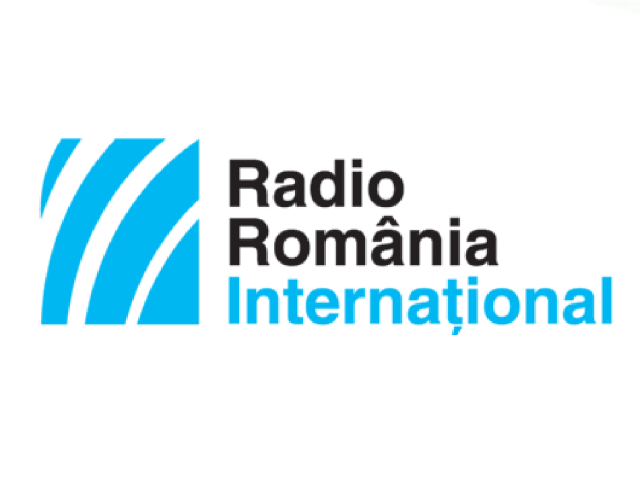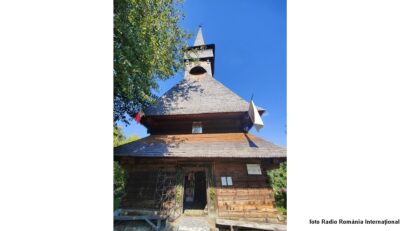Religious Opinions and Attitudes
A recently published info-graph aimed to highlight religious attitudes among Romanians.

Christine Leșcu, 18.07.2018, 11:30
95% of the Romanians believe in God, but only 21% say they go to church regularly. Also, although 67% are of the opinion that ‘homosexuality should be discouraged, only 27% of the Romanians think that a referendum is necessary to define marriage as strictly the union between and man and a woman. These data are part of a recently published info-graph, aimed to highlight religious attitudes among Romanians.
The Friedrich Ebert Romania Foundation made public the info-graph as part of its Social Monitor project, at a time when the ruling coalition announced its intention to organize a referendum, in response to a petition signed by three million people, calling for a change in the Romanian Constitution, in the sense that the Constitution should clearly state that family is based only on the freely consented marriage between spouses, man and woman, instead of just between spouses, as the fundamental law currently states. The petition was set forth by ‘The Coalition for Family, which militates for the traditional heterosexual family, based, among other things, on Christian principles.
Although most Romanians believe themselves to be religious, as both sociological surveys and common perceptions indicate, the Social Monitor info-graph has shown some discrepancies and gaps with regard to the choice of a religious life, which seems to be so solid and consistent. Here is the representative of the Friedrich Ebert Foundation Victoria Stoiciu with more:
Victoria Stoiciu: “According to the census, 99.6% of the Romanians belong to a certain religious denomination. On the other hand, though, if we look at the way in which people choose to live by these religious beliefs in their day to day lives, only 44% of them pray every day. Only 21% of the respondents say they go to church weekly. So, the discrepancy is clear. Although approximately 100% of the Romanians say they are religious, in reality they do not practice religion as much.
Anthropologist Vintila Mihailescu agrees with the data made public by the Social Monitor, which in fact confirm several credible researches carried out by prestigious sociological institutions, and the data provided by the national census conducted in 2011. Still, there are nuances to be kept in mind, especially when analysing the gap between what Romanians declare and what they really do. One example is that the vast majority of Romanians say they are religious, but only a quarter go to church every week, and less than a half pray every day.
Vintila Mihailescu: “This gap should not be interpreted as hypocrisy. We must understand that orthodox practices are, probably, less institutionalized than others. The direct relationship with God, by praying at home, is in itself a form of practicing religion. This gap in the graph is therefore not necessarily hypocrisy, as it is usually believed. It does not mean ‘I say I am religious, but actually I dont have time for this foolishness. Many communities that are very religious have their own customs and habits, which are often pre-Christian, even related to magic. These practices, therefore, which are by no means canonical, are accepted by some priests as a means of shepherding the believers.
In fact, the info graph made public by the Social Monitor confirms that the religious customs of a community—such as the generic community of Romanians—is not so much an expression of the faith of its members, but rather a bond between them.
Victoria Stoiciu: “It also seems paradoxical that 99.6% of the respondents say they belong to a religion, but only 95% say they believe in God. While not spectacular, this 5% gap is not insignificant either. It can be explained by the sense of belonging to a cultural community and to a tradition. For instance, if you were born into an Orthodox Christian family, you have been baptized, got married in church and so on, all these things mark your membership of a religion, but they do not mean that you necessarily believe in God as well. Belonging to a cultural community is not to mean that a person feels bound to observe the regular religious practices: going to church, praying, etc. The major rituals, the rites of passage, like baptisms, weddings, funerals, are generally observed.
It is along the same lines of a gap between principles and practice that another set of data has been read, namely the ones regarding the low support for a referendum on defining a family as based on the marriage of a man and a woman, although 67% of the Romanians believe homosexuality should be discouraged by society. Still, these data are also indicative of tolerance, Vintila Mihailescu believes:
Vintila Mihailescu: “The fact that homosexuality must be discouraged is, for a believer, a Christian or a man of the church, only natural. This is not good or bad in itself, but rather it is in line with how people define a good Christian. The surprise lies somewhere else. Two-thirds of Romanians seem to say: homosexuality must not be encouraged, but this must not mean persecution, it must not go as far as to changing the Constitution or the laws. Homosexuality should be neither encouraged, nor punished. And this requires more wisdom than I had expected.
Something even more relevant for the current state of mind in the Romanian society is that 79% of the Romanians link faith to morality, saying that one must believe in God in order to be a moral person.
Vintila Mihailescu: “This is symptomatic, because in peoples minds this connection is reinforced when living in a society perceived as being immoral, with very lax rules. There is a perceived risk of immorality, so the church becomes the only chance and the only thing to rely on. There is a return to the church, seen as the only possible guarantor of morality. And this means more than the fact that society is closely linked to religion. It shows peoples distrust in the morality of their society. We see ourselves as a deeply immoral society, or as threatened to become so, and in this case the only protection we have left comes from the church.






























